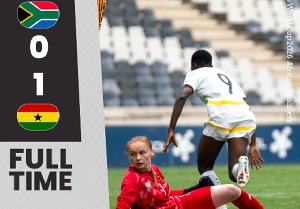Stakeholders at Ofaakor within the Awutu Senya East Municipality (ASEMA) have called for intensified education and support for improved solid waste disposal options in the municipality for clean and healthy environment.
This followed a focus-group discussion meeting organised by officials of Intervention Forum (IF), a non-governmental organisation, at Ofaakor, near Kasoa, the Municipal Capital, to assess the level of sanitation and hygiene services provided by the Assembly and Zoomlion, a private waste management company.
More than 30 participants comprising women and youth groups, Unit Committee and Assembly Members as well as Persons with Disabilities (PWDs) from three zonal areas and five selected communities namely Ofaakor, Opeikuma, New Town, Andam and Gaddah took part in the exercise.
The discussion focused on various areas such as the provision of improved solid waste disposal options/services; public places, cleaning of streets and drains, provision of inclusive/disability-friendly institutional and public toilet facilities, and support towards improved household toilet facility construction.
It also touched on sanitary inspections in public places, schools and workplaces; including redress of community sanitation-related complaints; enforcement and management of bye-laws; and environmental sanitation and hygiene education.
Other areas covered were food hygiene regulation and provision of drains. The citizens, who were taken through a participatory scoring process by officials from Intervention Forum (IF), were particularly worried about the worsening environmental situation in Kasoa and its environs, and attributed this to several reasons such as the slack in the national sanitation day campaign initiated a few years ago.
The officials, led by Nana Kwasi Acheampong, Joshua Elorm and Isaac Owusu, took the gathering through the use of the community scorecard (CSC) tool to evaluate the sanitation and hygiene services provided by the Assembly as well as key waste management companies such as Zoomlion, the extent of their work, and the level of general satisfaction with the services they rendered.
The meeting was also meant for citizens to come out with key suggestions on how best the existing sanitation and hygiene situation in the municipality could be improved.
In more precise terms, participants at the meeting assessed the various services based on the degree to which they responded to citizens’ needs; were physically accessible; and available at affordable cost. They also related to the degree to which these services were adequate, properly functioning and reliable, and were rated either as very poor, poor, average, good or very good.
The services assessed included the provision of inclusive disability-friendly institutional and public toilets; support towards improved household toilet facility construction; collection, transport and disposal of solid and liquid waste.
Others related to environmental sanitation and hygiene education, information and regular feedback on constraints such as delays in scheduled pickups, and charges per collection as well as sanitation inspections towards general hygiene in public places, schools, workplaces and churches.
The rest covered sanitation bye-laws enforcement and management; and redress of community sanitation-related complaints.
Bad environmental practices identified by the participants covered open defecation, dumping of rubbish in drains, overflowing refuse containers that remain uncollected for days, bushy surroundings and haphazard dumping of household refuse.
They, therefore, called for effective sanitation and hygiene messages to be spread across all forums such as church services or Islamic worship days, funerals, wedding ceremonies, and other community meetings or gatherings on a sustained basis.
They also called on both the Assembly and Zoomlion to provide more improved solid waste disposal options such as refuse bins and skip containers, affordable house-to-house waste collection services to complement this.
With the exception of affordability criteria, the stakeholders rated the services average or low under the respective criteria and attributed this to a number of key reasons such as low level of education, low reach, limited access and priority to certain areas and irregular visits by inspectors and waste collectors.
General News of Saturday, 14 April 2018
Source: ghananewsagency.org













